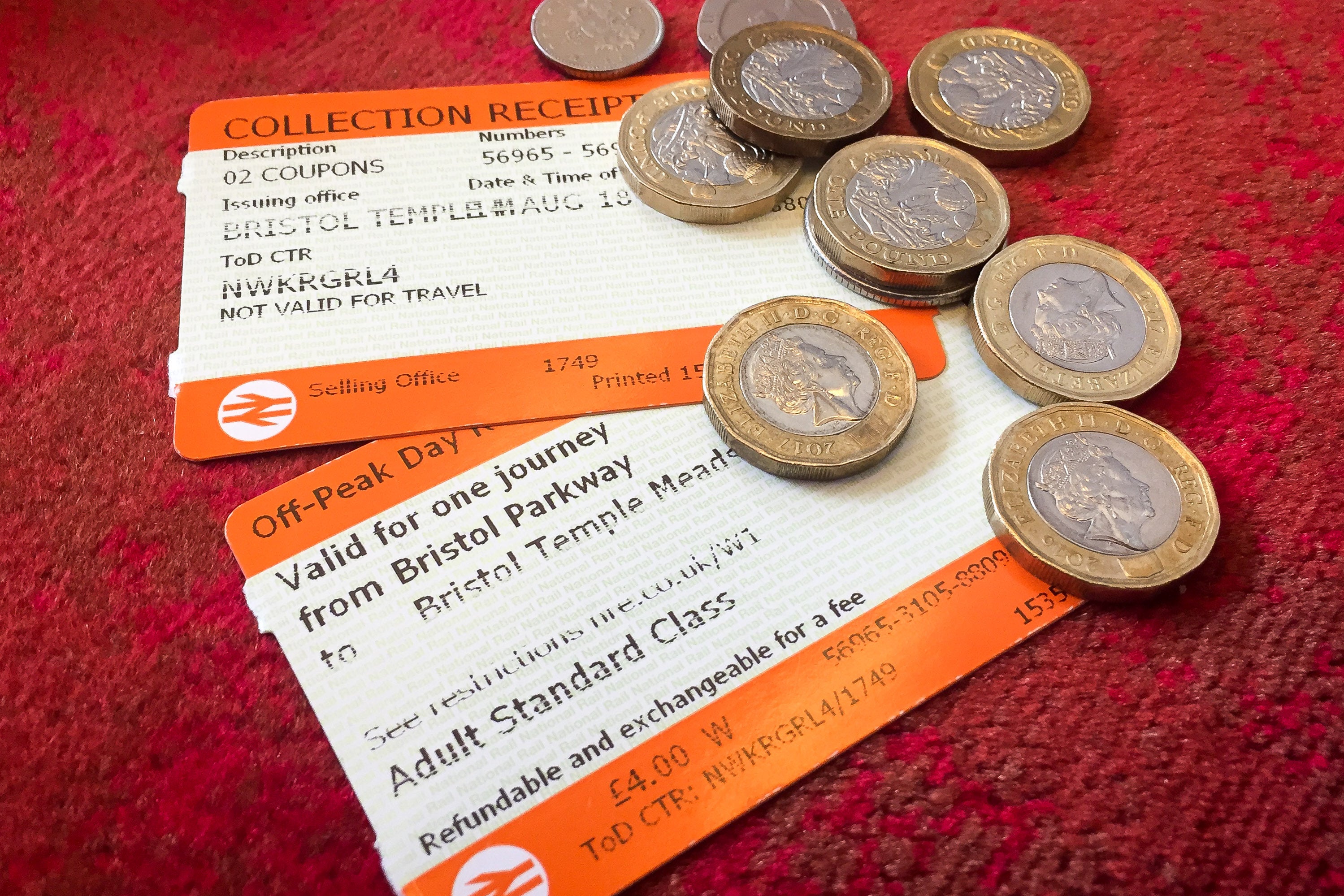Inflation figure used for rail fare rises to be released
The Office for National Statistics will publish last month’s retail prices index (RPI) at 9.30am.

Your support helps us to tell the story
From reproductive rights to climate change to Big Tech, The Independent is on the ground when the story is developing. Whether it's investigating the financials of Elon Musk's pro-Trump PAC or producing our latest documentary, 'The A Word', which shines a light on the American women fighting for reproductive rights, we know how important it is to parse out the facts from the messaging.
At such a critical moment in US history, we need reporters on the ground. Your donation allows us to keep sending journalists to speak to both sides of the story.
The Independent is trusted by Americans across the entire political spectrum. And unlike many other quality news outlets, we choose not to lock Americans out of our reporting and analysis with paywalls. We believe quality journalism should be available to everyone, paid for by those who can afford it.
Your support makes all the difference.An inflation figure usually used to determine annual rises in some train fares will be released on Wednesday.
The Office for National Statistics will publish July’s retail prices index (RPI) at 9.30am.
Traditionally, the UK, Scottish and Welsh Governments have used the figure to set the cap on the following year’s increase in regulated train fares, which include most season tickets on commuter routes.
July’s RPI is expected to be around 12%.
The devil will be in the detail
The Department for Transport announced on Monday that the 2023 increase in regulated fares in England will be below the inflation measurement.
Wales usually makes similar fare changes to England, while the Scottish Government has not announced its plan for 2023.
Rises in unregulated fares on Britain’s railways are set by operators.
Fares in Northern Ireland are set by operator Translink, which does not use RPI.
Chris Page, who chairs pressure group Railfuture, said: “The Government claims that the fare rise will be below inflation, but the devil will be in the detail.
“They won’t say what the increase will be, or which fares it will apply to.
“If the Government was serious about tackling the cost-of-living crisis it would make rail travel much more affordable and make it easier for people to use cars and planes less.
“Germany has shown the way with its nine euro (£7.58) travelcard offer.
“It proves that if the price is right, people will flock to the trains.”
Passengers are braced for more rail strikes on Thursday and Saturday, with only around a fifth of Britain’s train services operating and just half of lines open.
Thousands of members of the Rail, Maritime and Transport union, Transport Salaried Staffs’ Association and Unite at Network Rail and 14 train companies will strike in the long-running row over pay, jobs and conditions.
Analysis of Office of Rail and Road data by the PA news agency published on Tuesday found that industrial disputes, severe weather and coronavirus-related staff sickness caused the worst year for train reliability in Britain since records began.
The cancellations score in the 12 months to July 23 was 3.6%, which is the highest figure in records dating back to 2015.